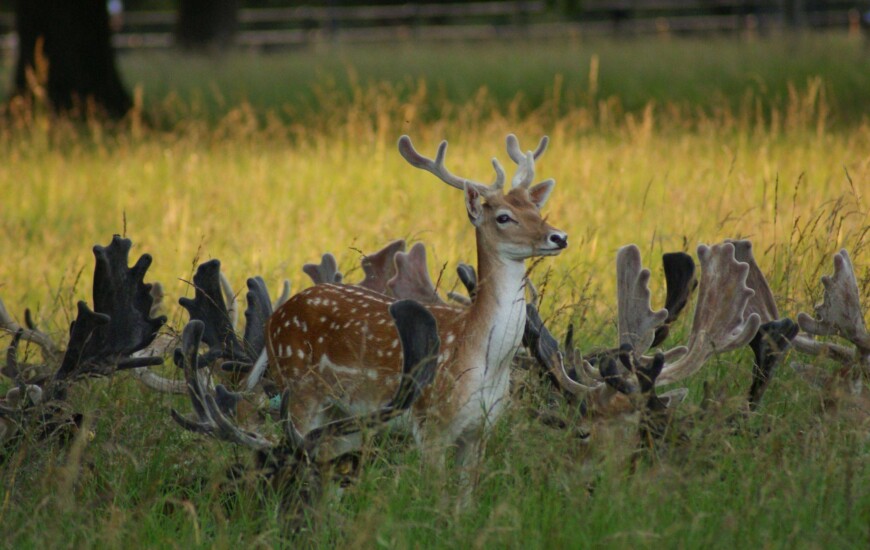Feeding Phoenix Park deer is harming herd, study shows
Gary Ibbotson 19 Aug 2022
Visitors who feed deer at the Phoenix Park are causing more harm than good, a new study has shown.
Researchers at University College Dublin (UCD) have published a study in the Journal of Animal Ecology proving that the fawns of females that regularly beg for food from humans are significantly bigger than those that do not beg.
Laura Griffin, lead author of the study, said the process of natural selection would mean that over generations the whole herd would become more dependent on human feeding and, therefore, more aggressive.
“In other words, in 10 years, if actions are not taken, you could end up with deer that consistently harass people… which clearly holds enormous risks for the people and animals involved,” she said.
The park is home to more than 600 fallow deer, which have been an attraction since it was first established in 1662.
The study showed that the entire deer population in the park fell into three categories: consistent beggars, occasional beggars, and rare beggars, with about 24 percent of the population consistently begging for food.
The deer that begged for food expectedly received the largest amount of food – including bread, crisps, carrots, apples, and biscuits, leading them to have a drastically different diet from those classed as rare and occasional beggars.
“In terms of this weight gain that we’re seeing there are concerns for the animals in the future,” Griffin says.
“The deer in the park give birth naturally. They go off on their own into covered areas and they give birth
“If there is a point where the fawns are getting larger because more and more people are feeding them, you might see issues with natural births in the future.
“The mother and the fawn could die as a result,” she says.
Griffin says that if visitors continue to feed the deer, future generations may inherit more aggressive traits from their parents.
“The offspring could certainly learn it from their mothers,” she says.
“There’s also some evidence that there’s a genetic element to it.
“If your [fawn’s] mother is one of these bolder individuals there’s a possibility that you’ll inherit that boldness and that will mean that you engage in these behaviours as well.”
The study is the first of its kind in the world which focuses on the relationship between wild animals being fed by humans and the impact it may have on the local population.
The Phoenix Park attracts about 10 million visitors a year and is home to roughly 600 deer.
The animals are entirely enclosed within the walls of the Phoenix Park and have no natural predators.
The deer were all tagged and observed over a period of 14 months between May 2018 and July 2019. Those that regularly interacted with humans for food were noted.











